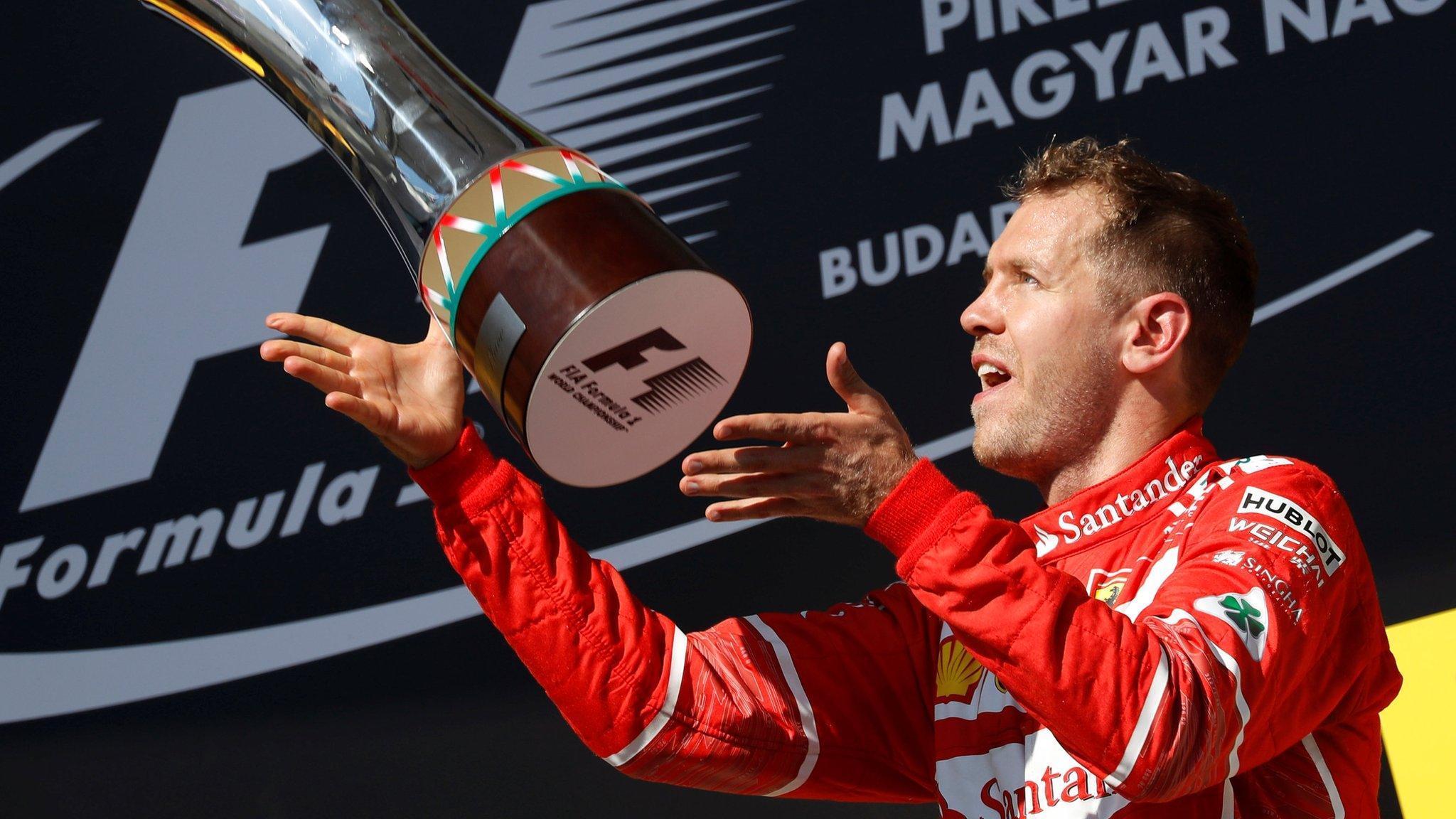Lewis Hamilton rues letting his heart rule his head at Hungarian Grand Prix
- Published
- comments
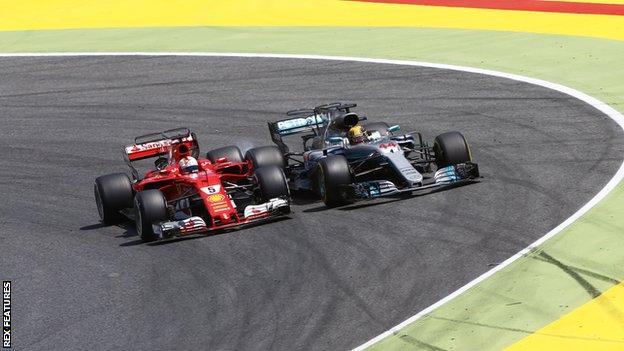
Sebastian Vettel leads Lewis Hamilton by 14 points in the Championship race
The conflict within Lewis Hamilton over his decision to give back third place to team-mate Valtteri Bottas on the last lap of the Hungarian Grand Prix was clear.
Hamilton insisted it was "the right way to do things" but admitted that by the time he made the final call on the last lap it was "a kind of grey area" and rued: "I don't think I'll ever get back those three points."
Hamilton's internal wrangle will have been exacerbated by the knowledge that ahead of him title rival Sebastian Vettel's Ferrari team were playing things in the opposite fashion.
The German was struggling with steering that was tilted to the left at varying degrees during the race, a problem that compromised his pace.
Vettel's team-mate Kimi Raikkonen was right behind him and telling the team he could go faster, but in terms that made it clear he knew he was not going to be allowed to pass.
So at the front Ferrari were focusing everything on maximising their team leader's points haul, using Raikkonen as a buffer against the attacking Mercedes later in the race. Mercedes were giving Hamilton the chance to do the same - but in the end giving away three points from him to Bottas.
The decision to let his team-mate back past on the last lap, Hamilton said, was "more from the heart".
"The mind is more cut-throat and 'every point counts and this is do or die'. But my heart tells me the right thing to do is let him by," he added.
The rights and wrongs of Hamilton's decision
The situation evolved in the second half of the race, as Mercedes found they had the pace to close on the Ferraris, who had dominated until the pit stops.
With Vettel struggling - forced to stay off the kerbs to protect the car, never quite sure how much steering he would need to make left-handers - Bottas began to close on the Ferraris and Hamilton began to do the same to his team-mate.
Mercedes' difficulties were exacerbated by a total communications shutdown on their pit wall - where for a time they had no radio between themselves or to the drivers, no data and no television feed.
So Hamilton spent a few laps behind Bottas, eating up his tyres, before the radio came back on stream and he was able to say: "I've got a lot of pace. You've got to let me use it."
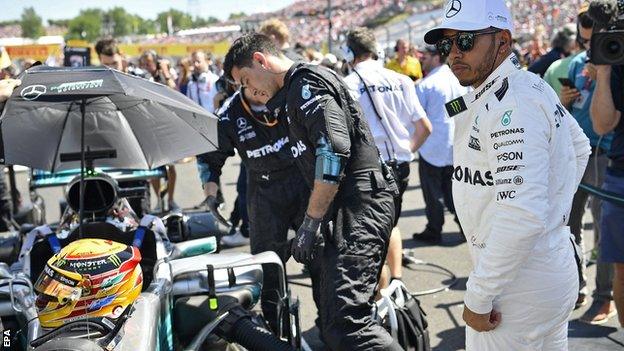
The F1 world title has been decided by three points or fewer on 18 occasions, underlining the risk Hamilton has taken with his gesture
Later, he explained: "My thought process is: 'I am faster than the guy, I think I can have a chance of winning this race for you guys. Let me go. Give me that chance or we are just wasting potential points for the team.' In my mind, I am: 'If he lets me past and I can't pull away then I will reverse it.'"
But pull away he did. Bottas let Hamilton by on lap 46, with 24 to go, having been told Hamilton would give him the place back if his attack failed. Hamilton caught the Ferraris within three laps. Initially he was told he had five laps to get it done on a more powerful engine mode. Then the team gave him five more, and then more again.
Raikkonen was telling Ferrari he was "not comfortable" in his bridging position. It was all getting very tense.
As the laps ticked by, it became clear Hamilton was not going to be able to pass Raikkonen and attack Vettel - as was always likely to be the case on a track where overtaking is notoriously difficult.
But as the three cars circulated at the front, they were pulling away from Bottas, partly because he was measuring his pace to ensure he had enough tyres left to defend from Red Bull's Max Verstappen at the end of the race.
With 10 laps to go, Hamilton led his team-mate by more than five seconds. With four to go, it was eight seconds, and still seven as they started the last lap.
And this is where the grey area comes in.
"If he let me by and I pulled him along and we were two seconds apart, it is a much easier thing to let him back," Hamilton said. "But I was seven seconds up ahead and with the Ferraris, and the team were in a difficult position.
"But it showed I am a man of my word and also that I am a team player. I am just as much a part of the team as anyone in it. It shows unity.
"In life, if you do good things, good things come back to you so hopefully globally as a team in our good doing it will pay dividends."
But still the conflict. Was three points a price worth paying for team harmony?
"I can't answer that," Hamilton said. "I lose the world championship; I don't know what I would say then if it is by three points or in that vicinity. But as I said I want to win it the right way."
The Mercedes position - and a dig at Ferrari
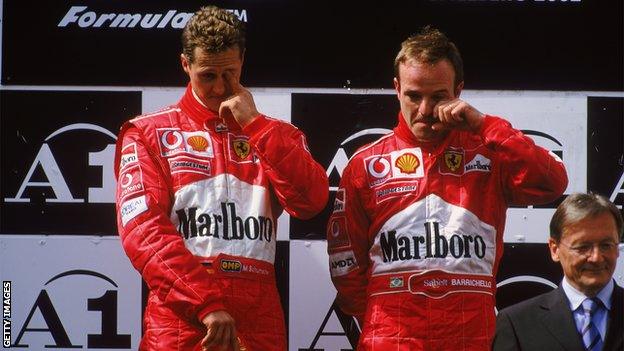
Ferrari's stage-managed end to the 2002 Austrian Grand Prix was a highly controversial incident - and made for an awkward podium ceremony
On the pit wall, Mercedes bosses debated allowing Hamilton to keep third place, but ultimately decided that letting him honour his pledge was the right approach.
Mercedes' team philosophy is based on a spirit of competition between the drivers - they are allowed to race until such point that it becomes apparent only one of them is realistically in a position to win the title. Team boss Toto Wolff believes this guarantees better performance by ensuring each driver is fully motivated.
Ferrari take a different approach - and have done for a long time. And in explaining his position, Wolff made a thinly veiled criticism of it.
Within his remarks, there was a reference to the controversial Austrian Grand Prix of 2002, when Rubens Barrichello was forced to give up the win on the final lap to team-mate Michael Schumacher, who was already leading the championship by a massive margin in a season Ferrari were dominating.
"We don't drive in circles because we enjoy it so much," Wolff said. "We drive in circles because we hope it promotes our brand and makes us sell cars and it is a very long-term project.
"If you come here [to the race] and you think this is what counts only, you are wrong. We have seen the backlash of decisions that were ruthless and cold-blooded. And the effect it had on a brand.
"You could say: 'Screw it. Who cares, you are in the history books.' But I don't think this is the right spin. The purpose of us being here is winning in the right way and sometimes doing it the right way and standing by your values is really tough and it was today. I feel terrible."
Whether one believes the Mercedes or the Ferrari approach is the right one is a matter of opinion, of course. And the answer may depend on how the championship turns out.
"In my mind I want to win the championship the right way," Hamilton said. "I don't know whether that will come back to bite me in the backside or not but I said at the beginning of the year I want to win it the right way and I do think today was the right way to do things."
Wolff added: "Saying I wouldn't regret it would be very naive. If you miss the championship by those three points everyone would say it is because of Budapest and I would be the first one to shoot myself in the knee.
"Nevertheless, standing by what you say and standing by your values is going to make us win more championships. It was a tough call to make, a very difficult one. Believe me probably the most difficult call we had to make in the last five years. I am not in a happy place at the moment but if you are not fast enough at least you are sportsmanlike."
Hamilton has things to work on
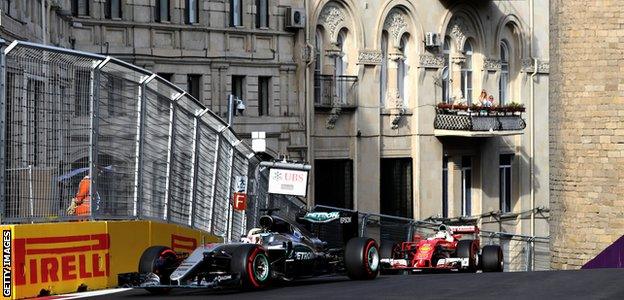
Hamilton and Vettel came together in acrimonious circumstances in Azerbaijan in June. Their battle is sure to intensify as the season reaches its climax
Whether karma will come to have an effect on the championship remains to be seen - and even if it did, who is to say it would come down on the side of Mercedes in this one?
Of more of a concern for Hamilton is the inconsistency of his performances this season - especially in qualifying at races where the team are not quite on the pace.
Wolff admitted that Mercedes would probably not have been able to challenge Ferrari for the victory had it not been for Vettel's problems - the red cars were just too fast around the Hungaroring.
Mercedes were struggling to find the right balance, not for the first time this season. And Hamilton was making more of a meal of it than Bottas - not for the first time this season.
A pattern is beginning to emerge and it is one of some concern for Hamilton's title hopes. When the car is not right, Hamilton is tending to over-drive it. Pushing for more performance, he tries too hard, goes over the limit of the tyres, and makes mistakes. Bottas just accepts the limit for what it is, doesn't fight it, and ends up going faster.
In Hungary, this was costly indeed. Having set the fastest time in second qualifying, Hamilton ran wide on his first lap in the top-10 shootout. That meant he had only one lap to secure his grid position and because of that he had to leave some margin.
The result was fourth on the grid - but there was a feeling in certain quarters that the pace was there for a place on the front row.
Had Hamilton started second - or even first - the issue of giving back third place or not would not have come up. He would have been able to attack Vettel from the start, and he may well have won. And then he would have an six-point lead heading into the summer break, rather than a 14-point deficit.
These errors by Hamilton were reminiscent of his driving at Russia, Monaco and Austria this year - all races on low-grip tracks with slow corners where Mercedes were struggling. And at all four races, Hamilton was out-qualified by Bottas.
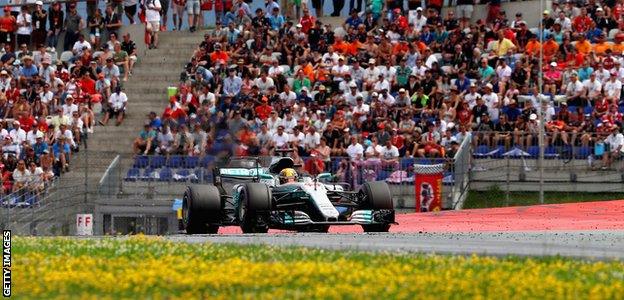
Lewis Hamilton recovered to fourth after a poor qualifying performance and a five-place grid penalty at the Austrian Grand Prix in July
This should not be happening to a driver who, even despite this, is on average qualifying time nearly 0.2secs quicker than his team-mate.
"He's always been up and down," someone who knows Hamilton well told me on Sunday, and this is true. But four poor qualifying sessions in 11 races risks being too high an average in a season in which he is facing Vettel in a fast Ferrari with a team fully focused on him alone.
"We have given up a lot of points up to today," Hamilton said. "Ferrari have given up a lot less as a team. We just hope we don't give up any more points."
He is right about that - but the onus in ensuring it stops happening is as much on him as on his team.
Gallery: titles decided by three points or fewer
- Published30 July 2017
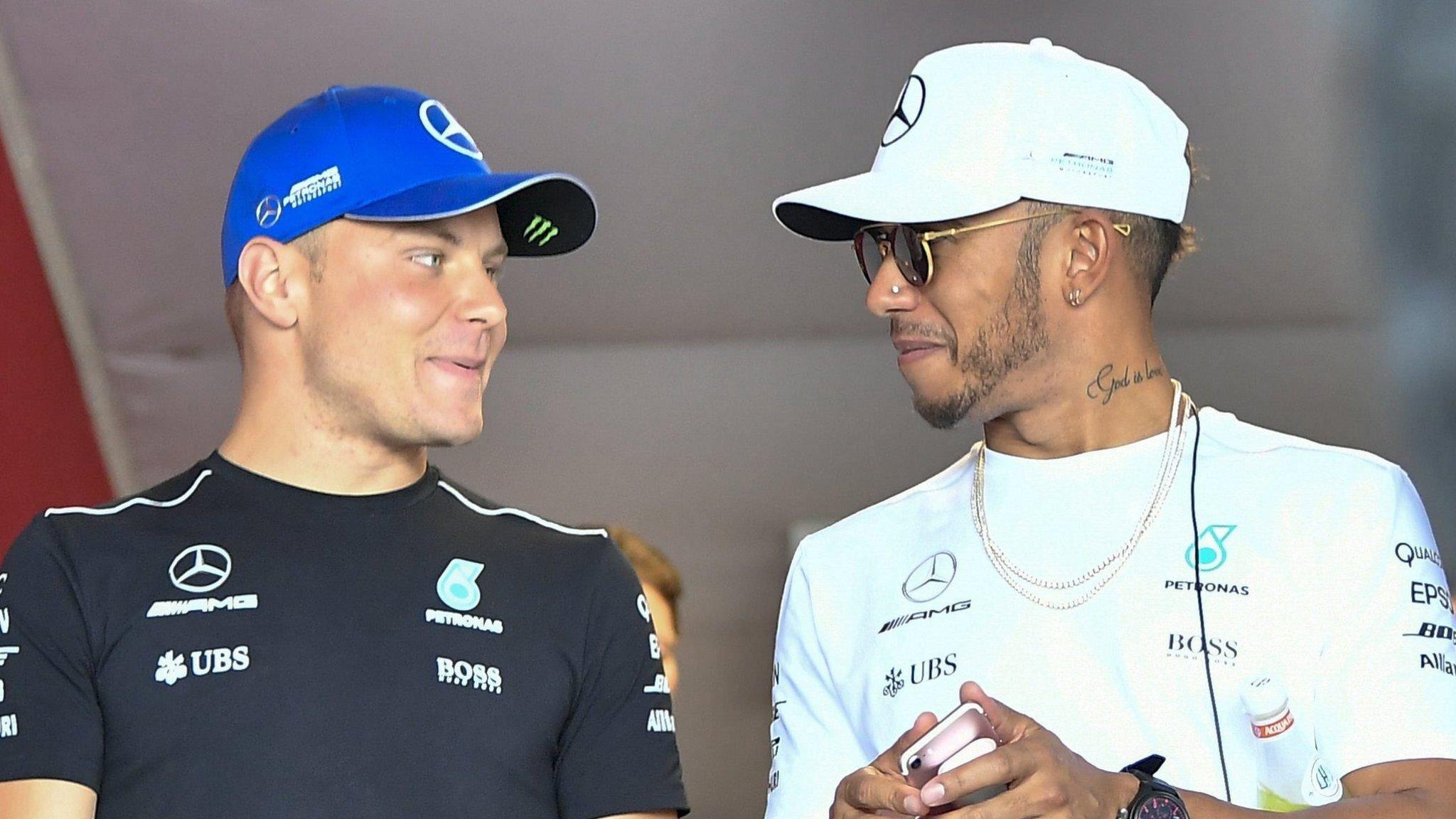
- Published30 July 2017
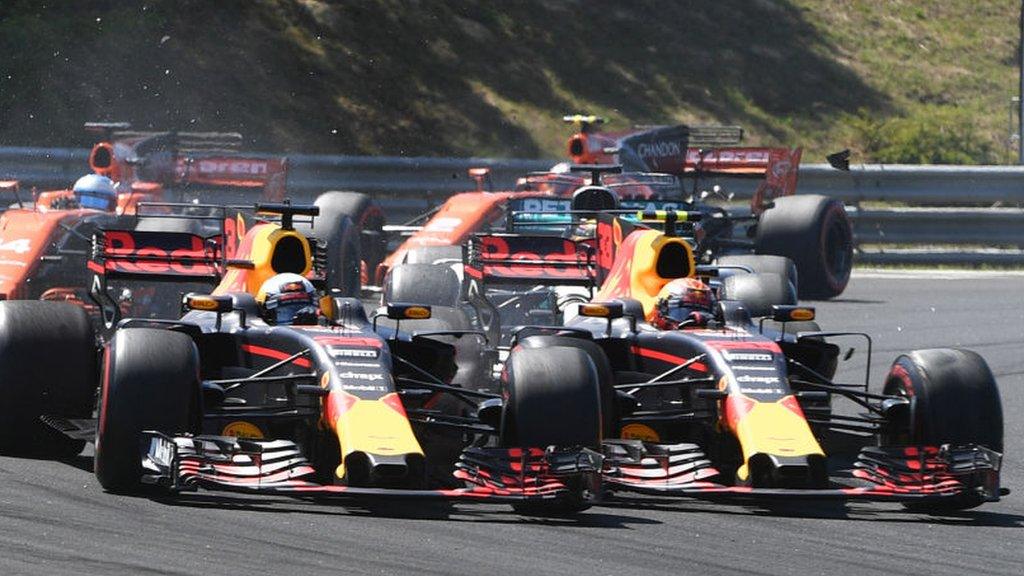
- Published30 July 2017
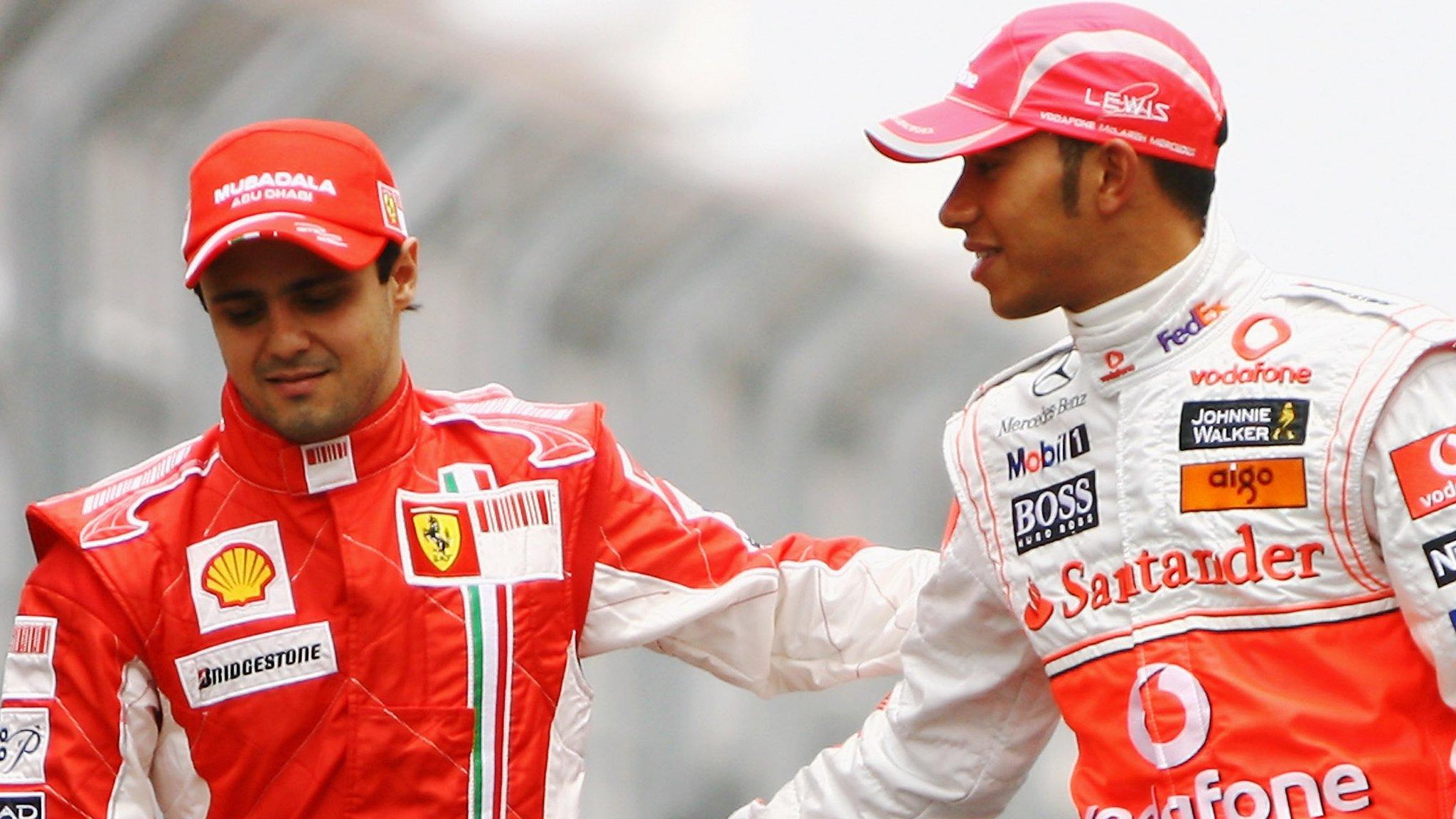
- Published30 July 2017
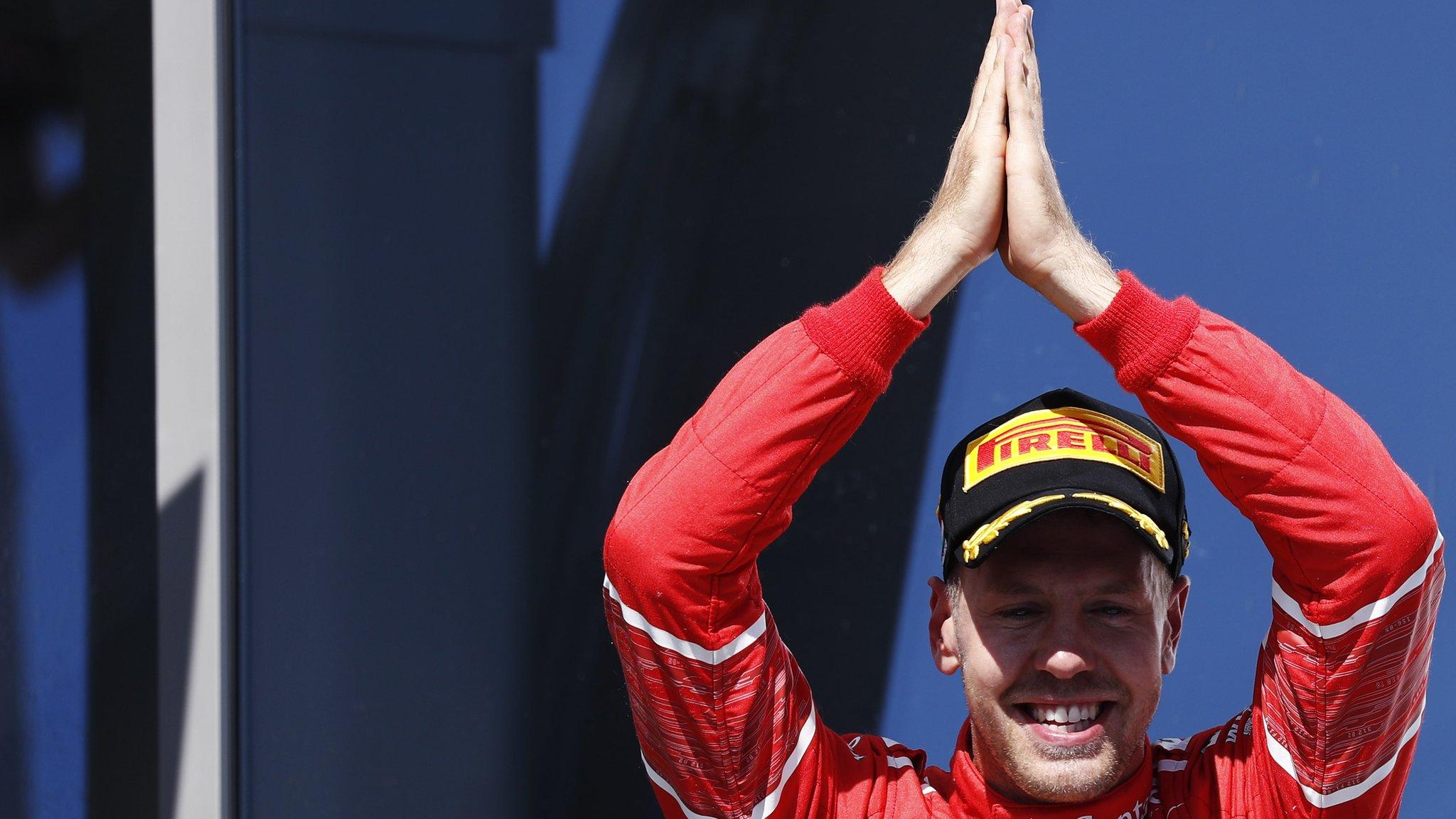
- Published17 July 2017
